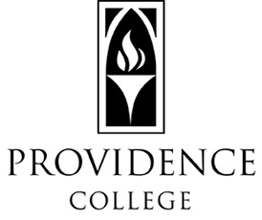Biographical note
The son of two devout Quakers, John Greenleaf Whittier was born and raised on the family farm on December 17, 1807, in Haverhill, Massachusetts. His first published poem, "The Exile's Departure," was published in William Lloyd Garrison's Newburyport Free Press in 1826. At Garrison's urging, Whittier attended Haverhill Academy from 1827 to 1828, while supporting himself as a shoemaker and schoolteacher.
A Quaker devoted to social causes and reform, Whittier worked passionately for a series of abolitionist newspapers and magazines. In Boston, he edited the American Manufacturer and the Essex Gazette before becoming editor of the New England Weekly Review. Whittier was also active in his support of National Republican candidates; he was a delegate in 1831 to the national Republican Convention in support of Henry Clay, and he himself ran unsuccessfully for Congress the following year.
His first book, "Legends of New England in Prose and Verse", was published in 1831. For the next thirty years until the Civil War, Whittier wrote essays and articles as well as poems that were concerned with abolition. In 1833 he wrote "Justice and Expedience" urging immediate abolition. In 1834 he was elected as a Whig for one term to the Massachusetts legislature. The folowing year he was mobbed and stoned in Concord, New Hampshire, for his beliefs. In 1836 Whittier moved to Amesbury, Massachusetts where he worked for the American Anti-Slavery Society. Later while working as the as editor of the Pennsylvania Freeman, in May 1838, the paper's offices were burned to the ground and sacked during the destruction of Pennsylvania Hall by a mob.
Whittier helped to establish the antislavery Liberty party in 1840 and ran for the U.S. Congress in 1842. In the mid-1850s he helped form the Republican party, supported the presidential candidacy of John C. Frémont in 1856, and helped to found the Atlantic Monthly in 1857.
The Civil War inspired the famous poem, "Barbara Frietchie," but with slavery abolished in 1865 Whittier turned his attention to topics of religion, nature, and rural life. His his most popular work, Snow-Bound (1866) sold 20,000 copies, enough to leave Whittier and his extended family without financial need.
In the early 1880s, he formed close friendships with Sarah Orne Jewett (1849–1909) and Annie Fields (1834-1915), both well-known New England authors. For his seventieth birthday dinner in 1877, Ralph Waldo Emerson, Henry Wadsworth Longfellow, Mark Twain, Oliver Wendell Holmes, James Russell Lowell, and William Dean Howells were in attendance. While Whittier's critics often considered him to be just an average poet, they thought him a nobel and kind man whose verse gave unique expression to ideas they valued. Whittier passed away at Hampton Falls, New Hampshire, on September 7, 1892.


